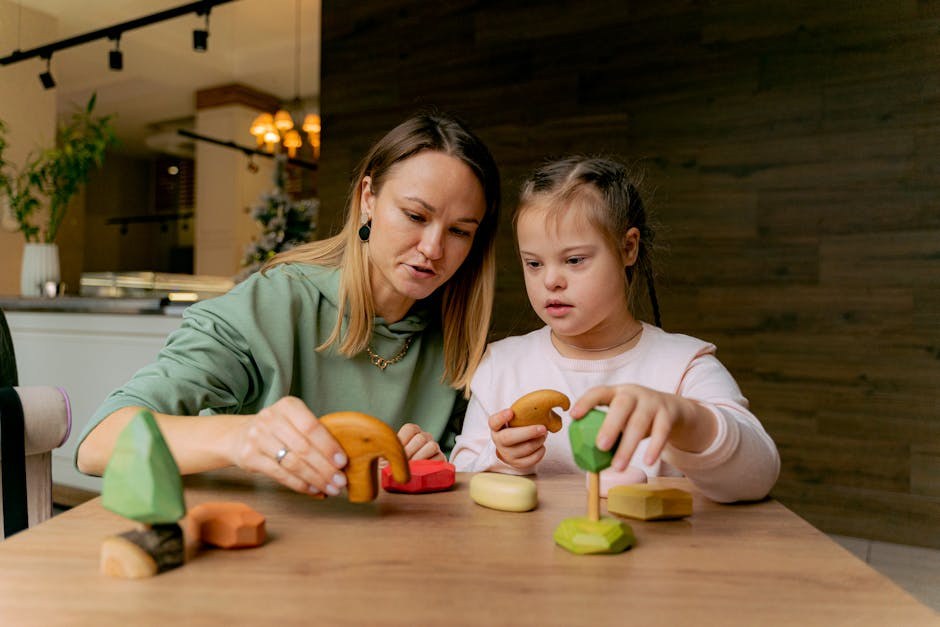People ask it all the time-how much does sex in a relationship really matter? The honest answer is nuanced. Physical closeness can act like emotional glue, yet it isn’t the only ingredient that keeps love steady. Still, when partners choose to nurture desire with care and curiosity, sex in a relationship often becomes a reliable bridge back to warmth, trust, and playfulness. What follows reframes familiar ideas with fresh language and structure, exploring why bodies and hearts respond so strongly to intimacy, how it shapes daily life, and what to do when the spark feels dim.
Why Pleasure Registers So Deeply
Before weighing the importance of sex in a relationship, it helps to understand why intimate moments land with such force. What happens between the sheets is more than skin-deep-it’s a whole-body interaction that blends sensation, emotion, and meaning. Think of it as a mini ecosystem: arousal heightens attention, closeness amplifies tenderness, and release tends to quiet the inner critic. For many couples, the afterglow is not simply fatigue-it’s relief paired with closeness, a gentle reset that says, “we’re okay.” That’s one reason sex in a relationship often marks turning points during busy weeks and hard seasons.
Another reason intimacy resonates-there’s a lived conversation happening even when words are sparse. Every shared touch carries information about comfort, trust, boundaries, and longing. This feedback loop can be clarifying: when partners tune in, they learn what soothes, what excites, and what reassures. Over time, sex in a relationship becomes a practice of reading one another, not just a pursuit of release.

Does It Actually Change the Relationship Climate?
Some people insist that sex in a relationship is the hinge on which everything else turns. Others argue that honesty, loyalty, and shared values do the heavy lifting. You can acknowledge both views. Physical intimacy often amplifies goodwill-making forgiveness easier and everyday annoyances smaller-while emotional intimacy gives sex somewhere safe to land. In healthy dynamics the two grow together, each strengthening the other. That is why sex in a relationship tends to feel most meaningful when it is consensual, attentive, and intentionally connected to care.
Ways Intimacy Supports a Partnership
Below is a reorganized tour through the many roles intimacy can play. The items build on each other, but feel free to explore them in any order-use what resonates and leave what doesn’t.
Reinforces connection. When life scatters your attention, sex in a relationship gathers it back. Eye contact, breath, and touch remind you that you’re on the same team-an embodied “we” rather than two parallel calendars. Those minutes of closeness often echo through the next day, lowering defensiveness and inviting warmth.

Invites honest communication. To be intimate is to share information-what feels good, what doesn’t, and what it all means. Speaking about pleasure requires vulnerability, which often spills into other parts of life. Couples who practice naming desires and limits during sex in a relationship tend to grow braver about naming needs at the dinner table, too.
Signals appreciation. When you initiate thoughtfully or respond with presence, you’re saying, “I see you.” Attuned encounters-where partners listen with their hands and pause when needed-broadcast affection more clearly than compliments alone. In that sense, sex in a relationship becomes a living thank-you.
Guards against stagnation. Routines can keep households running, yet lovers also need sparks. Shared play-flirty banter, slow teasing, new settings-reintroduces surprise. Variety doesn’t require spectacle; even a small shift can make sex in a relationship feel new again.

Gives you something fun to share. Not every evening requires plans or tickets. Sometimes the most restorative choice is to stay in, switch off the noise, and enjoy each other. Pleasure can be productive-dimming stress, softening edges, and renewing patience for tomorrow.
Reveals personality and care. Consider how your partner reaches for you, how they slow down, or how they smile afterward. These details are a map of temperament and tenderness. Watching each other in this light can deepen empathy and make sex in a relationship a window into the person you love.
Carves out protected time. In crowded lives, uninterrupted minutes are rare. Creating a pocket of privacy-no alerts, no to-do list-turns intimacy into ritual. The message is simple and powerful: we matter enough to pause. That ritual quality is part of why sex in a relationship often steadies couples during hectic seasons.
Builds emotional safety. Trust grows where tenderness is consistent. When partners meet each other gently-checking in, asking, adjusting-the nervous system settles. Over months and years, these small acts add up to a sturdy sense of “you are safe with me,” which makes sex in a relationship feel like home.
Helps repair after conflict. Arguments happen. Once you’ve talked things through, returning to closeness can underline the repair-less a bandage than a promise. Mindful intimacy-paced, responsive, and kind-reaffirms the bond without erasing the lesson learned.
Strengthens teamwork. Great intimacy is collaborative. You adapt, improvise, and support-skills that translate to money talks, family logistics, and future planning. In this way, sex in a relationship is practice for cooperation elsewhere.
Creates personal rituals. Maybe there’s a favorite playlist, a shared joke, or the way you hold each other afterward. These small signatures become part of your story, turning ordinary evenings into meaningful traditions. Rituals help sex in a relationship stay anchored rather than accidental.
Restores playfulness. Lovers who laugh together tend to weather more together. A lighthearted moment in bed can release pressure that built up during the week. That joy isn’t trivial-it’s bonding energy, and it keeps sex in a relationship from feeling like another task.
Encourages growth. Curiosity-trying a slower pace, a new approach, or simply new words-keeps intimacy evolving. Growth doesn’t mean erasing boundaries; it means exploring within them. Couples who stay curious keep sex in a relationship flexible and alive.
Sustains chemistry. Over time passion ebbs and flows. Intentionally courting desire-date nights, affectionate texts, unhurried mornings-keeps the current moving. The point isn’t constant fireworks; it’s steady warmth that makes sex in a relationship reliably inviting.
Affirms attraction. Saying “I want you” with touch can quiet nagging doubts. Especially in long partnerships, deliberate appreciation counters the static of routine. That affirmation doesn’t hinge on appearance alone; it recognizes presence, kindness, and the distinctive ways your partner is them.
Surfaces compatibility. How you negotiate preferences-pacing, affection, boundaries-reveals a lot about collaboration and respect. If there are gaps, they’re invitations to learn. Addressed with patience, those lessons make sex in a relationship sturdier and more satisfying.
Reminds you why you chose each other. The thrill of early days may mellow, yet closeness can still take you back-if not to those first butterflies, then to the gratitude that followed. In quiet moments you remember, “Oh, it’s you.” That recognition renews commitment from the inside out.
Signals That Intimacy Needs Attention
Sometimes the issue hides in plain sight. You might not say, “we need more sex in a relationship,” yet you feel oddly distant. Look for patterns like these and treat them as gentle prompts rather than verdicts.
Growing distance. Conversation feels thin, or companionship slips toward roommate mode. You share a space but not a spark. Restoring small doses of affection-hand on shoulder, lingering kiss-can be the first step toward richer sex in a relationship.
Faster escalations. With less physical softness in the bank, minor irritations balloon into bigger fights. Re-introducing tenderness doesn’t erase disagreements-it cushions them.
Affection fades. When make-outs and hugs vanish, the rest often follows. Nonsexual touch keeps the bridge intact, making sex in a relationship easier to approach without pressure.
Stress lingers. Without a reliable way to unwind together, tension accumulates. Simple rituals-slow breathing, quiet cuddling-prepare the ground for more intimate connection later.
Insecurity creeps in. Doubts about desirability can lead to protective distance. Naming fears-with kindness-often resets the tone and makes sex in a relationship feel safer again.
Flat conversations. Logistics dominate while inner life goes unshared. Reconnecting through touch can reopen the door to deeper talk.
Distracted fantasies. Imagining intimacy elsewhere may signal unmet needs. Rather than scolding yourself, treat it as information-what qualities are you missing, and how can you invite them back into sex in a relationship?
Autopilot living. Days blur; spontaneity evaporates. Even small changes-different lighting, music, or timing-can loosen the script.
Avoiding alone time. If privacy feels loaded, partners may overbook or drift into separate rooms. Gentle affection-without expectation-can restore ease.
Vague longing. You miss each other without a clear reason. That ache often points to neglected tenderness. Naming the ache out loud is a courageous opening.
Practical Ways to Put Intimacy Back on the Calendar
Big breakthroughs rarely hinge on grand gestures. Small, consistent changes accumulate, making sex in a relationship feel less like a performance and more like a shared practice.
Schedule connection-without apologizing. Spontaneity is lovely, but intention wins on busy weeks. Pick a window, protect it, and treat it as a date. Planning doesn’t kill romance-it frees attention for each other.
Speak what you want. Share desires and limits in plain language. Curiosity beats pressure every time. A gentle “would you like to try…?” keeps sex in a relationship collaborative.
Rebuild with small touches. Start with hand-holding, back rubs, or a hug that lingers one breath longer. These signals lower the emotional threshold for later intimacy.
Shape the setting. Clean sheets, softer light, fewer distractions-the environment matters. You’re not chasing perfection, just creating an easier landing strip for sex in a relationship.
Break patterns kindly. Try a different time of day, unhurried pacing, or a new focus on sensation. Novelty can be gentle-think curiosity over spectacle.
Tend to your well-being. Rest, movement, and stress care influence desire. Feeling good in your body makes it easier to enjoy sex in a relationship and to bring generosity to it.
Reduce digital noise. Phones steal presence. Park them elsewhere during meals and bedtime so you can actually meet each other’s gaze.
Address the real blockers. If resentment or unspoken hurts hover, tenderness will struggle. Naming the hard thing-possibly with support-often clears the way for more satisfying sex in a relationship.
Celebrate tiny wins. Notice what worked: a deeper breath, an easier laugh, a more relaxed pace. Appreciation builds momentum.
Practice patience. Desire is cyclical. Go slow, stay kind, and let consistency do its work. Pressure is the enemy of joy.
Understanding the Bodily Upsides-In Plain Language
Even without quoting studies, it’s fair to say most people recognize the felt benefits: lighter mood, calmer nerves, easier sleep, and a general sense of being on the same wavelength afterward. Those experiences are part of why sex in a relationship often leaves partners steadier the next day. The body and the bond talk to each other-tension eases, attention softens, and affection becomes simpler to give and receive.
Confidence can lift as well. Feeling desired is its own kind of mirror-one that reflects more than appearance. When the connection is thoughtful and caring, it says, “you matter here,” which can quiet the inner critic. That quiet helps sex in a relationship feel less evaluated and more explored.
Keeping It Ethical, Tender, and Real
All of this assumes what should go without saying-consent and respect are non-negotiable. The most skillful lovers are attentive listeners, and the most satisfying encounters are collaborative. If something feels off, pause. If a boundary shifts, talk about it. Sex in a relationship works best when both people feel free to say yes and equally free to say no. That freedom is what makes a wholehearted yes meaningful.
Bringing It All Together
A thriving partnership has many pillars-trust, communication, shared dreams-and physical closeness is one of them. Not every couple will want the same frequency or style, and that’s okay. What matters is that you treat sex in a relationship as a conversation: one part touch, one part talk, all parts care. When you approach intimacy with intention, you turn ordinary evenings into moments that replenish patience, brighten moods, and strengthen the quiet promise to show up for each other again tomorrow.
If your connection feels thin, begin small-one affectionate gesture, one honest sentence, one protected hour. Let those choices ripple. Over time, they can transform sex in a relationship from a topic that stirs anxiety into a practice that restores warmth. In the end, you are not just pursuing pleasure-you’re building a place where both of you can relax, be known, and feel wanted. That is the subtle, steady magic of intimacy done with care.
Note: Language matters. Swap judgment for curiosity, urgency for patience, and performance for presence. Do that consistently, and sex in a relationship becomes less about checking a box and more about sharing a life.